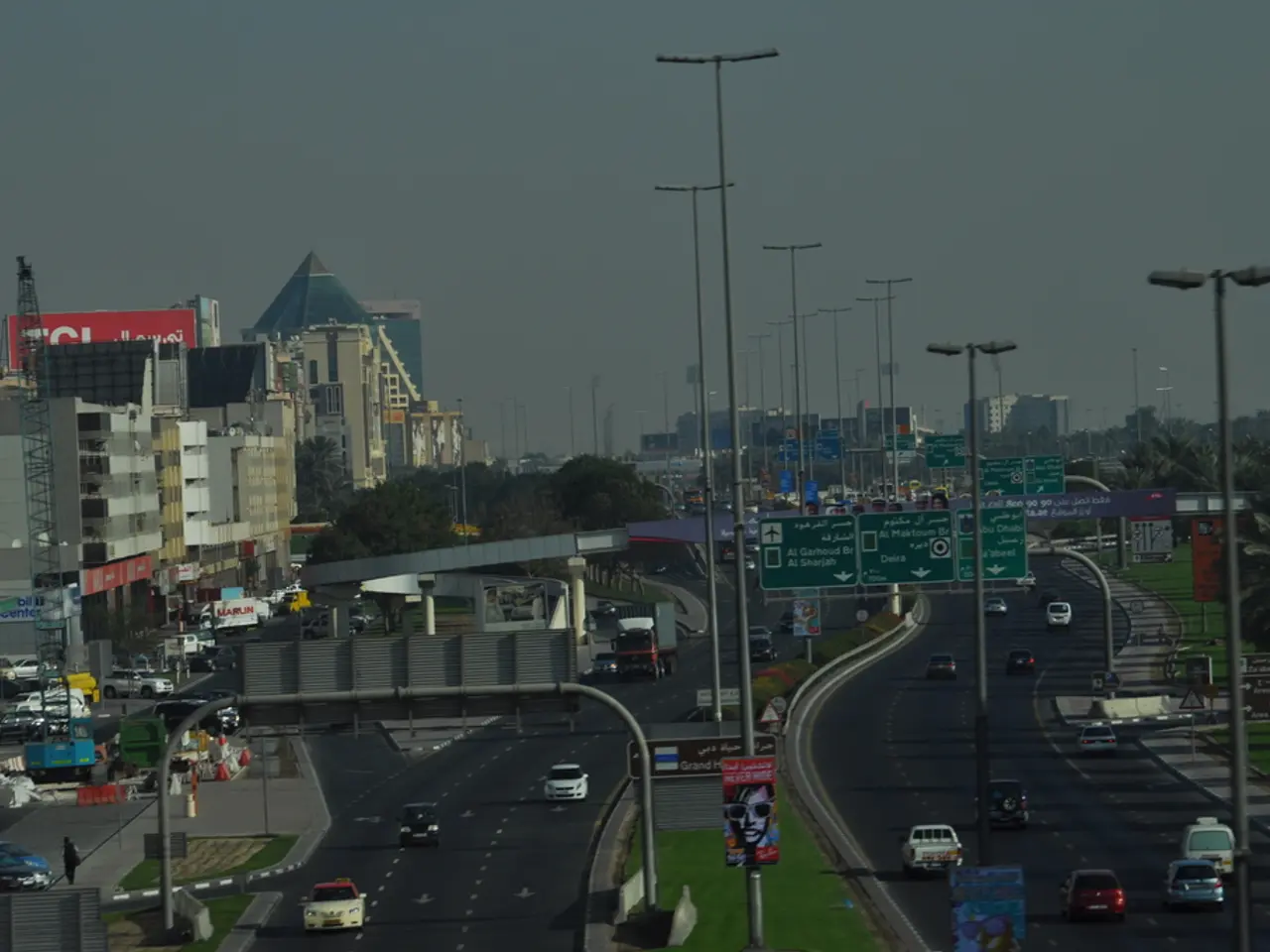Unveiling the challenges and accomplishments in urban digital transformation
In the pursuit of becoming more liveable, resilient, and efficient, local authorities are looking to implement smart city solutions. However, several significant challenges stand in their way.
These barriers include insufficient infrastructure, digital skills gaps, internal resistance to change, budget constraints, and issues around data privacy and cybersecurity. These challenges can delay or limit the success of digital transformation projects in local government [1][3][4][5].
Despite these obstacles, there are important opportunities that smart city tech offers. Smart city solutions can enable better resource management, improved public services, and stronger coordination between city departments and utilities, enhancing resilience to environmental challenges like floods or heat waves [2].
One solution to addressing these challenges is the use of 'low code' and 'no code' application development platforms. These platforms can significantly accelerate, democratize, and simplify the development of digital public services and operational tools.
By reducing the need for extensive digital skills, these platforms lower barriers caused by skill gaps in government IT teams. They enable faster prototyping and deployment of services, helping overcome longer development cycles and internal resistance to change. They also allow non-technical staff and departments to participate directly in creating or customizing digital tools, increasing collaboration and adoption [1][4][5].
The commercial value of smart city solutions could reach $408 billion per annum by 2020, according to a study commissioned by the UK government [6]. Teams can collaborate and create using the application platform-as-a-service (aPaaS) model, where an enterprise platform license plus training unlocks digital capability and enables unlimited creation of applications [7].
Examples of smart city projects include Google mining mobile phone data to map real-time congestion and the City of London using big data to track crime hotspots [8]. Smart city initiatives can include tackling urban energy crises through smart metering, driverless cars, and increased democratic participation via social media.
Smart cities will grow through numerous small projects, exploiting the technology available now, rather than through one monolithic program. The technology exists that can deliver smart city solutions now, but organizations need the ability to experiment and innovate to realize the potential benefits sooner.
A move from the information economy to the intelligent economy is necessary for the realization of benefits in smarter, more collaborative cities. Frost and Sullivan estimates the combined market potential for energy, transportation, healthcare, building, infrastructure, and governance at $1.5 trillion globally [9].
However, high profile digital projects that have gone awry in the UK in recent years may make it difficult to find confidence for such projects. Despite this, the potential benefits of smart city solutions are too significant to ignore. By overcoming the challenges and embracing the opportunities, local authorities can transform cities into more efficient, responsive, and sustainable environments.
References: [1] https://www.gov.uk/government/news/new-digital-technologies-will-transform-city-living [2] https://www.gov.uk/government/publications/smart-cities-the-uk-smart-cities-roadmap [3] https://www.gov.uk/government/publications/digital-strategy-for-the-uk/digital-strategy-for-the-uk [4] https://www.gov.uk/government/publications/smart-cities-the-uk-smart-cities-roadmap/chapter-3-smart-cities-in-the-uk [5] https://www.gov.uk/government/publications/smart-cities-the-uk-smart-cities-roadmap/chapter-4-opportunities-for-smart-cities [6] https://www.gov.uk/government/publications/smart-cities-the-uk-smart-cities-roadmap/chapter-5-the-economic-benefits-of-smart-cities [7] Peter Robbins, Mercato Solutions [8] https://www.gov.uk/government/publications/smart-cities-the-uk-smart-cities-roadmap/chapter-6-case-studies [9] Frost and Sullivan
- Beyond smart city solutions, smart home devices, home-and-garden gadgets, and technology are also transforming everyday lifestyle, providing energy efficiency and easier management of household affairs.
- The integration of data-and-cloud-computing technologies in these devices offers opportunities for optimized resource utilization and personalized user experiences, making homes more responsive and sustainable.
- As we strategize toward creating smarter cities, let's not overlook the potential of smart home technologies in making homes an integral part of our overall vision for a livable, resilient, and efficient future.




